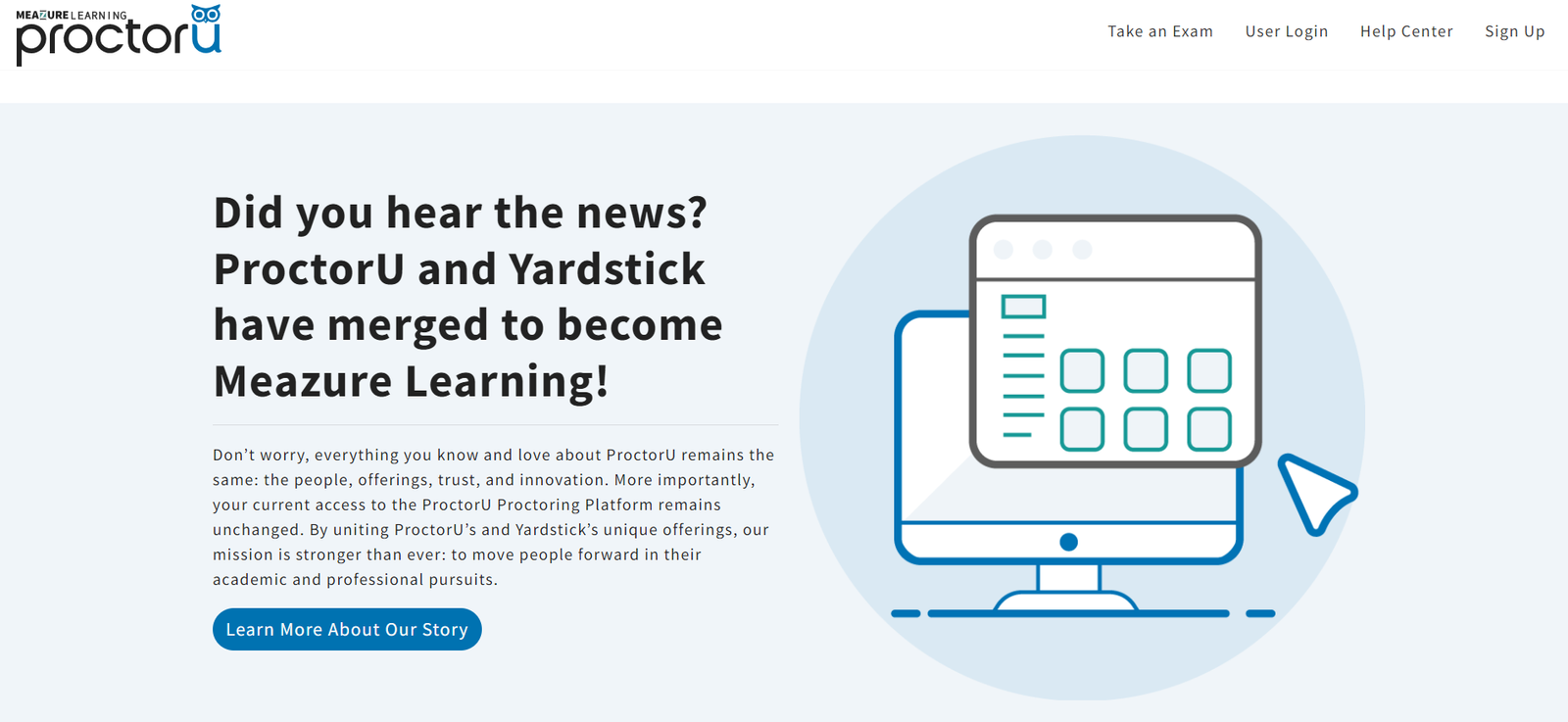Compliance and Ethical Considerations with ProctorU
- 1 Online Proctoring and the Need for Compliance
- 1.1 FERPA Compliance:
- 1.2 Accessibility Compliance:
- 1.3 Data Protection Laws:
- 1.4 Contracts and Agreements:
- 2 Ethical Considerations in Online Proctoring
- 2.1 Transparency:
- 2.2 Informed Consent:
- 2.3 Privacy:
- 2.4 Data Security:
- 2.5 Equity and Accessibility:
- 2.6 Fair Assessment:
- 3 Attempts to “Cheat on ProctorU” and Their Implications
- 4 Conclusion
The advent of online education has revolutionized the way we learn, offering accessibility and convenience to students around the world. However, it has also presented new challenges in ensuring the integrity of online exams. Educational institutions have increasingly turned to online proctoring services like ProctorU to mitigate cheating and maintain exam integrity. In this article, we explore the legal landscape surrounding online proctoring, focusing on compliance and ethical considerations with ProctorU. Additionally, we examine the implications of attempts to “cheat on ProctorU” and the consequences for both students and institutions.
Online Proctoring and the Need for Compliance

Online proctoring services like ProctorU serve as a vital tool to address the growing challenges of academic dishonesty and the imperative to maintain the integrity of assessments in the digital learning environment. However, it is paramount that the utilization of such services is carried out with strict adherence to legal regulations and unwavering commitment to ethical principles in order to protect the rights and interests of all stakeholders involved.
FERPA Compliance:
The Family Educational Rights and Privacy Act (FERPA), a cornerstone of student privacy protection in the United States, establishes stringent guidelines for safeguarding students’ educational records and confidential information. In the context of utilizing ProctorU or similar services, educational institutions must take meticulous measures to ensure that all student data is handled and managed in full compliance with FERPA regulations. This compliance not only fortifies the students’ trust in their institutions but also serves as a legal obligation to preserve their privacy.
Accessibility Compliance:
Educational institutions are not only entrusted with fostering academic excellence but are also bound by legal obligations to ensure equitable access to education for all students, including those with disabilities. In this context, online proctoring services, such as ProctorU, must be made fully accessible to every student, irrespective of their physical or cognitive abilities. This necessitates institutions to proactively implement reasonable accommodations, ensuring that students with disabilities can effectively utilize online proctoring services without encountering any unnecessary hindrances. By doing so, institutions demonstrate their commitment to inclusivity and compliance with accessibility laws and regulations.
Data Protection Laws:
Beyond the borders of the United States, various jurisdictions have enacted stringent laws and regulations governing the collection, storage, and processing of personal data. As students’ personal information is inevitably collected and processed when using online proctoring services like ProctorU, educational institutions must diligently comply with the data protection laws relevant to their geographic location. The paramount objective is to safeguard the privacy and confidentiality of students’ personal information, thereby ensuring that the data is not susceptible to unauthorized access or misuse. The intricate web of data protection laws underscores the global importance of securing students’ personal data when utilizing online proctoring services.
Contracts and Agreements:
The foundation of any successful partnership between educational institutions and online proctoring providers lies in meticulously crafted contracts and service agreements. These legally binding documents serve as a roadmap delineating the roles, responsibilities, and liabilities of both parties. It is imperative that educational institutions engage in thorough scrutiny and negotiation of these contracts to ensure they align with legal regulations and ethical standards. Such agreements should encompass a comprehensive understanding of data handling, security protocols, confidentiality clauses, and dispute resolution mechanisms. By establishing clear contractual parameters, institutions fortify their legal position and enhance their capacity to demand accountability from proctoring service providers.
Ethical Considerations in Online Proctoring
In addition to legal compliance, ethical considerations are of paramount importance in the utilization of online proctoring services such as ProctorU. Institutions must be diligent in addressing the following ethical considerations to ensure that the implementation of online proctoring is conducted with integrity and fairness:
Transparency:
Transparency serves as the cornerstone of trust in the relationship between educational institutions and their students. It is essential to foster an environment of openness by clearly communicating the use of online proctoring services. This includes articulating the rationale behind their implementation, the benefits they offer, and the expectations for student conduct during examinations. Transparent communication empowers students with the knowledge they need to make informed decisions about their education and assessment processes.
Informed Consent:
Recognizing the fundamental right of students to make informed decisions about their educational journey, institutions must obtain the informed consent of students when implementing online proctoring services. This consent should be freely given and based on a comprehensive understanding of how online proctoring will be utilized. Students should also be presented with alternatives whenever possible, allowing them to select the assessment methods that align with their preferences and comfort levels.
Privacy:
Protecting the privacy of students is a non-negotiable ethical responsibility. Educational institutions must take proactive measures to ensure that online proctoring services like ProctorU do not infringe upon students’ privacy rights or compromise their personal information. Robust privacy policies, data encryption, and stringent access controls should be in place to safeguard sensitive student data from unauthorized disclosure or misuse.
Data Security:
Safeguarding the security of student data is not only a legal obligation but also a moral imperative. Educational institutions should collaborate closely with online proctoring providers to establish and maintain robust data security measures. This includes regularly assessing the security protocols, conducting security audits, and ensuring that data is stored and transmitted in a secure manner. Data breaches can have far-reaching consequences, including damage to institutional reputation and harm to individuals’ privacy.
Equity and Accessibility:
Ethical considerations extend to ensuring that all students, regardless of their circumstances, have equitable access to educational opportunities. In the context of online proctoring, institutions must be proactive in providing reasonable accommodations to students with disabilities, ensuring they can participate in assessments without undue hindrance. Additionally, institutions should actively identify and address potential disparities in access to online proctoring services, striving to create an inclusive environment where every student has a fair chance to succeed.
Fair Assessment:
Online proctoring should never be deployed as a means to entrap or disadvantage students. It should be viewed as a tool designed to uphold the principles of fair and honest assessment. Institutions must take deliberate steps to minimize the risk of false positives, where students are wrongly accused of misconduct, and ensure that students are treated fairly throughout the assessment process. This includes having clear procedures for addressing any suspected violations and offering students an opportunity to defend themselves.
Attempts to “Cheat on ProctorU” and Their Implications
Despite the efforts to maintain exam integrity, some students may attempt to cheat on ProctorU or similar online proctoring platforms. These attempts can have serious consequences, both legally and academically:
- Academic Consequences: Students caught cheating on ProctorU may face academic penalties, such as failing the exam or course, suspension, or expulsion. These consequences can have a lasting impact on their academic records and future opportunities.
- Legal Ramifications: Cheating on ProctorU can lead to legal consequences, including violations of academic integrity policies, copyright infringement, and even legal actions by educational institutions.
- Ethical Dilemmas: Cheating not only undermines the educational process but also raises ethical dilemmas. It erodes trust and fairness within the academic community and can have a detrimental effect on the learning environment.
- Loss of Credibility: Institutions may lose credibility if they are unable to prevent cheating effectively. This can harm their reputation and deter prospective students from enrolling.
- Mitigation Efforts: Educational institutions may invest in additional mitigation efforts to prevent cheating, which can result in increased costs and administrative burdens.
Conclusion
The legal landscape of online proctoring, with a focus on compliance and ethical considerations with ProctorU, is a complex terrain that educational institutions must navigate. While the use of online proctoring services is intended to protect exam integrity, it must be done in a manner that upholds legal regulations and ethical principles.
Institutions must prioritize transparency, informed consent, privacy, and data security when implementing online proctoring. They should also strive to create an equitable and accessible environment for all students. Moreover, students should be aware of the serious academic and legal consequences of attempting to “cheat on ProctorU” or any other online proctoring platform.
Balancing the need for exam integrity with legal and ethical responsibilities is crucial for the success and credibility of online education. By carefully considering the legal and ethical dimensions of online proctoring, educational institutions can ensure that their assessment practices are fair, secure, and respectful of students’ rights.

















